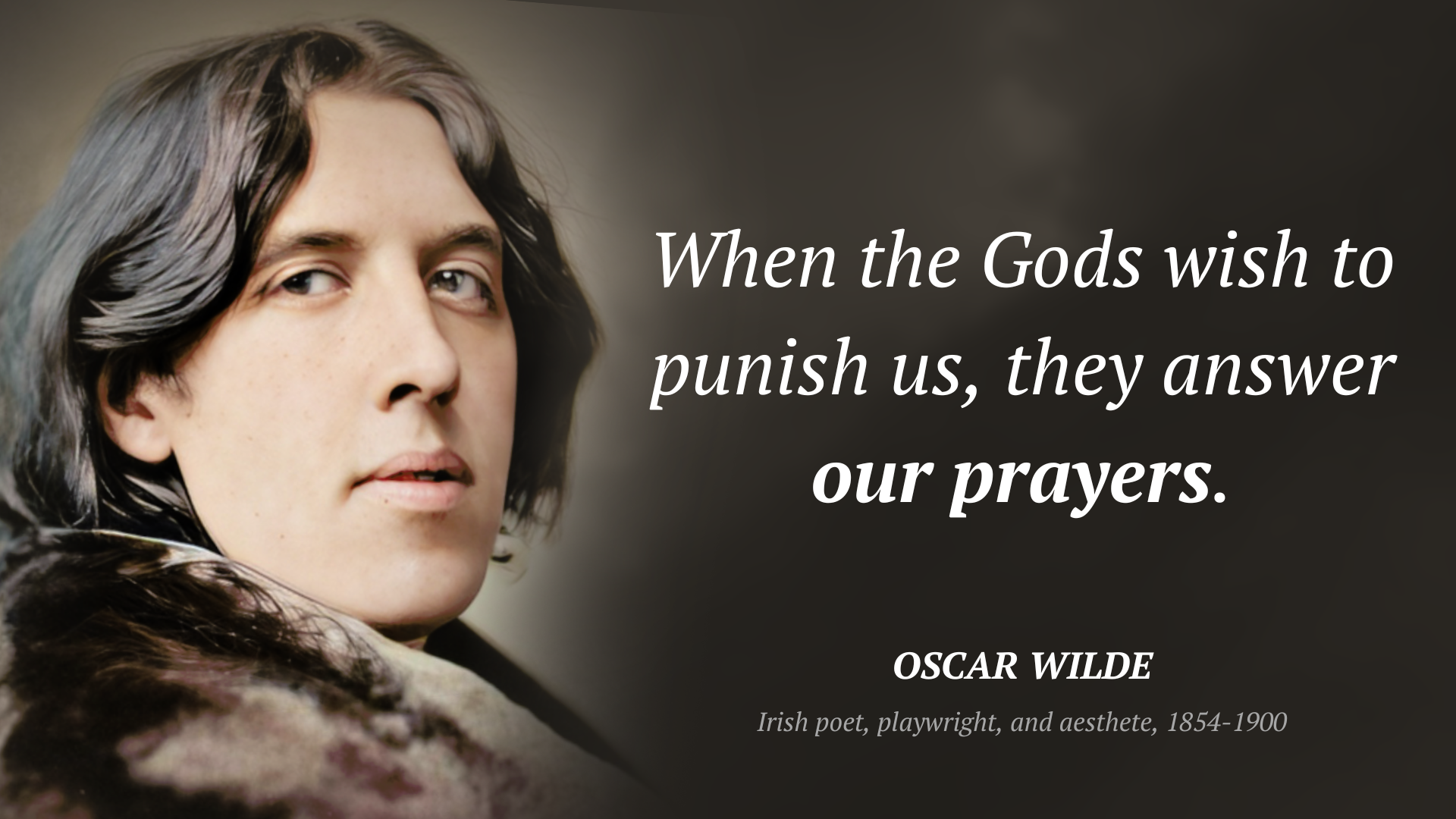
“There was purification in punishment. Not 'Forgive us our sins,' but 'Smite us for our iniquities' should be the prayer of a man to a most just God.”
Source: The Picture of Dorian Gray
Help us to complete the source, original and additional information
Oscar Wilde 812
Irish writer and poet 1854–1900Related quotes


“I see this wicked creature ordained of God to punish us for our sins and unthankfulness.”
Letter to the Earl of Leicester (15 October 1586) on Mary, Queen of Scots, quoted in John Cooper, The Queen's Agent: Francis Walsingham at the Court of Elizabeth I (2011), pp. 226–227

The Sixteenth Revelation, Chapter 73
Context: When we begin to hate sin, and amend us by the ordinance of Holy Church, yet there dwelleth a dread that letteth us, because of the beholding of our self and of our sins afore done. And some of us because of our every-daily sins: for we hold not our Covenants, nor keep we our cleanness that our Lord setteth us in, but fall oftentimes into so much wretchedness that shame it is to see it. And the beholding of this maketh us so sorry and so heavy, that scarsely we can find any comfort.
And this dread we take sometime for a meekness, but it is a foul blindness and a weakness. And we cannot despise it as we do another sin, that we know: for it cometh of Enmity, and it is against truth. For it is God’s will that of all the properties of the blissful Trinity, we should have most sureness and comfort in Love: for Love maketh Might and Wisdom full meek to us. For right as by the courtesy of God He forgiveth our sin after the time that we repent us, right so willeth He that we forgive our sin, as anent our unskilful heaviness and our doubtful dreads.

“The gods' most savage curses come upon us as answers to our own prayers, you know.”
Source: World of the Five Gods series, The Curse of Chalion (2000), p. 94

“A shaping stone, to make us; a testing ground to prove our worth; and a punishment for the sin.”
Aiel on the Three Fold Land
(15 November 1990)

Against Julian, Book II, ch. 8, 22. In The Fathers of the Church, Matthew A. Schumacher, tr., 1957, ISBN 0813214009 ISBN 9780813214009pp. 83-84. http://books.google.com/books?id=lxED1d6DAXoC&pg=PA83&lpg=PA83&dq=%22justification+in+this+life+is+given+to+us+according+to+these+three+things%22&source=bl&ots=K9fP-vBQqj&sig=2yV56Mq2aukLy8iM1FvpSfmULqA&hl=en&ei=8ZuCTdXGC4WO0QGCl-HGCA&sa=X&oi=book_result&ct=result&resnum=1&ved=0CBUQ6AEwAA#v=onepage&q=%22justification%20in%20this%20life%20is%20given%20to%20us%20according%20to%20these%20three%20things%22&f=false
Contra Julianum

Part 2, 00:29:56
The Root of All Evil? (January 2006)
